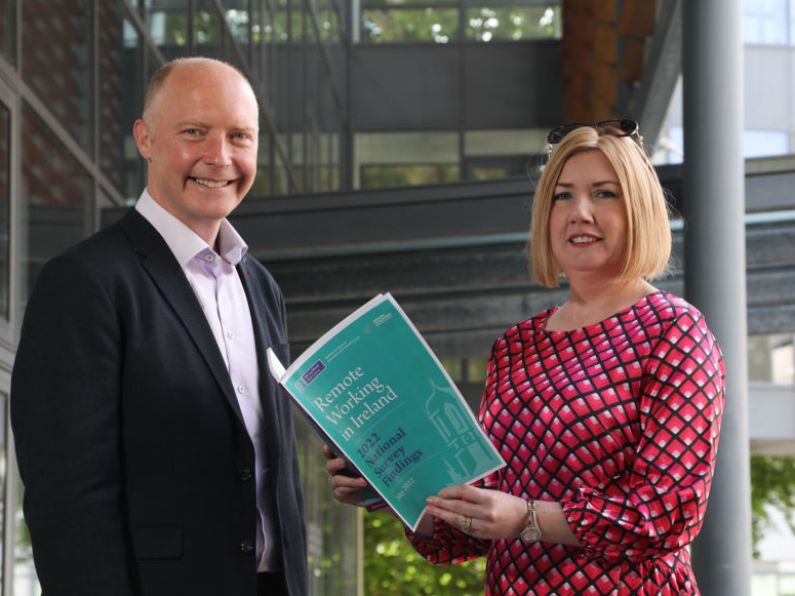James Cox
Researchers from the Whitaker Institute at NUI Galway and the Western Development Commission have revealed that almost one third of workers are willing to move to a new job to secure their remote working preferences.
The findings are from the third annual National Remote Working Survey, led by Professor Alma McCarthy and Noreen O’Connor at NUI Galway, and Tomás Ó Síocháin and Deirdre Frost at the Western Development Commission.
The survey gathered responses from more than 8,400 employees, in late April and early May, on their current experience of remote working.
Findings include:
- Of those who could work remotely, 52 per cent were currently working hybrid, 40 per cent fully remotely, and only 8 per cent were fully on-site.
- If their future remote working preferences were not facilitated, 30 per cent of all respondents indicated that they will change job, with 33 per cent indicating they may change jobs even if it meant a pay cut.
- 37 per cent indicated that they will change job and 27 per cent indicated they are open to the possibility of changing jobs, even if it means less promotion opportunities if their future remote working preferences were not facilitated.
- 49 per cent of all respondents clock more hours while remote working, compared to working on-site; 45 per cent work the same hours, and 6 per cent reported that they work fewer hours.
- 30 per cent of respondents indicated they spent 30 minutes to an hour of the time they saved commuting working; 27 per cent spent up to half an hour; and 14 per cent spent 1 to 1.5 hours.
- Almost half, 49 per cent, believe remote working has no impact on opportunities for promotion, with 33 per cent not yet knowing the impact. Nine per cent believe there is a positive impact while 9 per cent believe there is a negative impact on promotion opportunities.
Minister for Rural and Community Affairs, Heather Humphreys, said: “The Government’s Rural Development Policy, Our Rural Future, clearly recognises the vital role that remote working can play in achieving balanced regional development. At a time when there are labour market shortages, remote working can help companies attract and retain talent.
“So much excellent work has been done in the last few years to support remote workers and employers - these survey results will build on that work, providing up-to-date information on remote working experience of employees. I have no doubt that this will help enable us to make the right decisions at this crucial time.”
Professor Alma McCarthy, head of the J.E. Cairnes School of Business and Economics, NUI Galway, said: “The third annual NUI Galway/Western Development Commission national remote working survey has, once again, gained huge interest with more than 8,400 responses.
“We added a new module asking if remote working was a key factor in changing employer and career decision making. It is interesting to see that of those who changed employer since the outbreak of Covid-19, nearly half - 47 per cent - indicated that remote working was a key factor in their decision to change employer.”

Tomás Ó Síocháin, chief executive of the Western Development Commission, said: “The findings of the latest national survey highlight a further change in the way we view remote working and indicate that Irish workers expect to continue working remotely either all of the time or to find a balance in line with their lifestyle.
“Leaders will now be challenged to look at ways of supporting their staff and find that balance to avoid retention issues. The ConnectedHubs.ie network now with over 230 hubs onboard across the country can play a key role offering a suitable workplace close to home, a space for offsite meetups and an opportunity for companies to cut down on their carbon footprint.”
Further data from the National Remote Working Survey showed:
- While more than half of respondents (58 per cent) had never worked remotely before the pandemic, 76 per cent either agreed or strongly agreed that working remotely makes their job easier, and 95 per cent either agreed or strongly agreed that working remotely makes their life easier.
- Some 27 per cent of respondents have changed employer since 2020. Of these, 47 per cent indicated that remote working was a key factor in their decision as their new employer offered better opportunities in this area.
The top five activities for which respondents spent the time saved on commuting are: household duties (e.g. cleaning, shopping, DIY); exercise; working on their main job; relaxation; and caring responsibilities.
When asked about the future of remote working the survey showed:
- 50 per cent of respondents said their organisation has confirmed how they will work in the future, while 22 per cent are in a trial phase.
- Of the 50 per cent whose organisations have confirmed their future working patterns, 61 per cent of respondents indicated that they will work hybrid; 30 per cent will work completely remotely; and only 9 per cent will work fully on-site.
- Of those who will work hybrid into the future, 36 per cent are expected to be on-site a minimum of two days a week; 24 per cent a minimum of three days; 17 per cent a minimum of one day; and 3 per cent are expected to be on-site a minimum of four days a week; 8 per cent are expected to be on-site several days a month; and 12 per cent indicated “other” expectations of their employer about being on-site.
The vast majority of respondents indicated remote working is impacting employee attraction and retention in their organisation. Eighty-eight per cent strongly agree and agree with the statement that their organisation needs to offer remote/hybrid working to attract staff and 90 per centstrongly agree and agree with the statement that their organisation needs to offer remote/hybrid working to retain staff.






